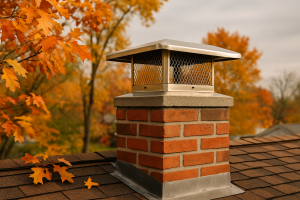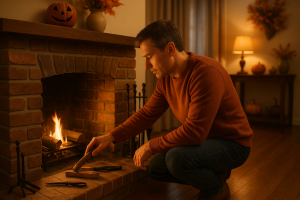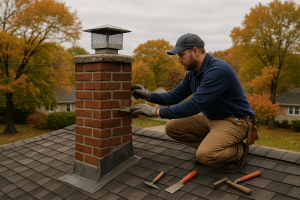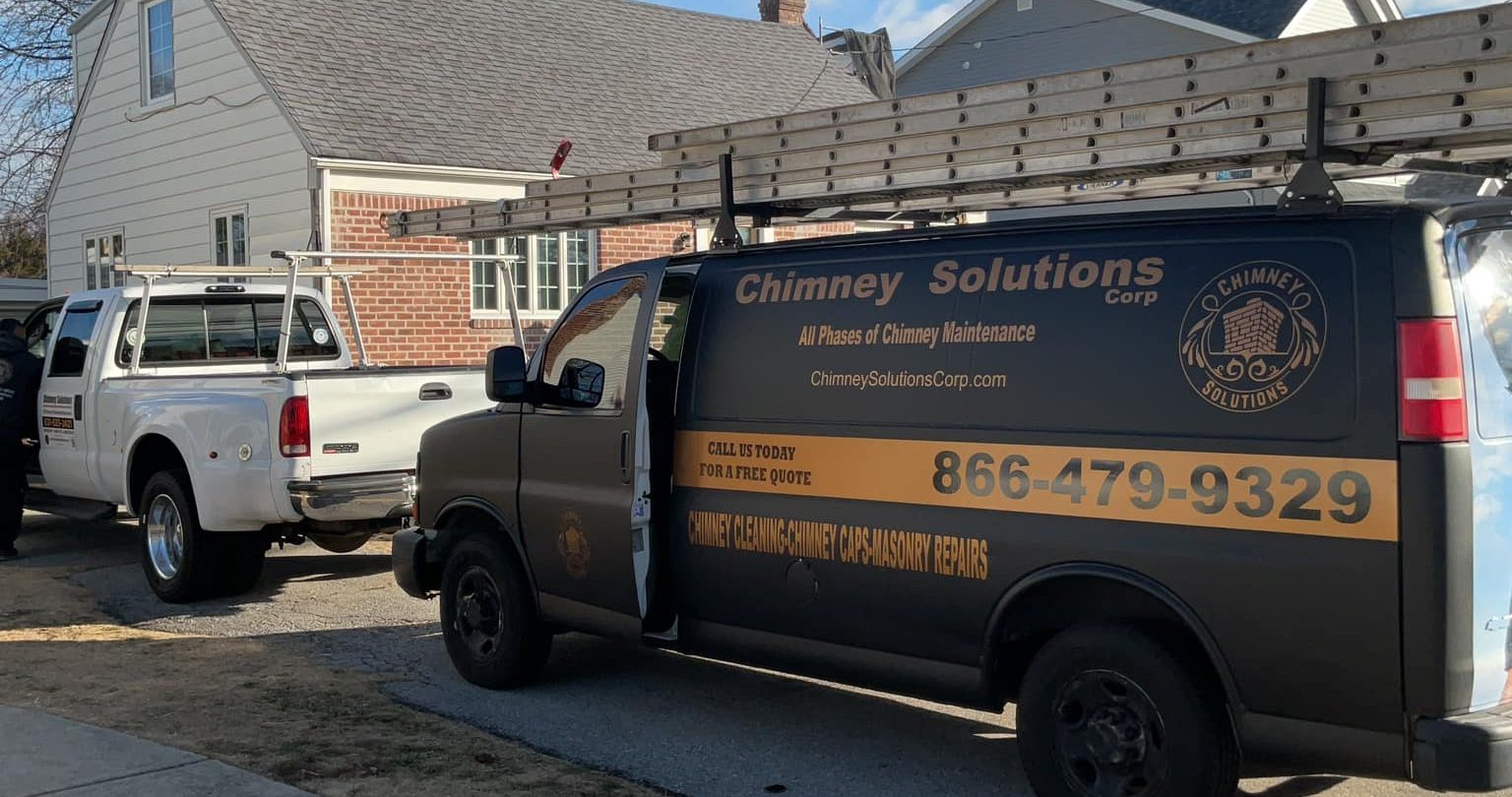Why Regular Chimney Cleanings Are Essential for Long Island Homes
Owning a home on Long Island comes with many responsibilities, and one that often gets overlooked is regular chimney cleaning. With Long Island’s cold winters and the increasing use of fireplaces, maintaining a clean chimney is crucial to ensure safety, prevent costly repairs, and improve indoor air quality. This article will walk through the key reasons why every Long Island homeowner should prioritize chimney cleaning as part of their annual maintenance routine.
The Importance of Chimney Maintenance
Regular chimney cleaning is more than just keeping the space tidy—it’s about protecting your home. Chimneys that aren’t cleaned regularly pose a significant risk of fire hazards, carbon monoxide buildup, and structural damage. For Long Island homeowners who rely on their fireplaces during cold winters, a neglected chimney can quickly become a safety hazard.
Many Long Island homes feature masonry chimneys that require special care due to their exposure to harsh weather conditions like freezing temperatures, heavy rain, and humidity. Routine annual chimney inspections and cleanings can help spot early signs of masonry damage, such as cracks in the chimney crown or flue blockages. Keeping up with regular maintenance ensures your chimney stays in good condition, preventing larger, more expensive issues down the road.
Common Hazards of Neglected Chimneys
Chimneys are prone to a range of issues when they are not properly maintained. Creosote buildup, animal nests, and blockages can all increase the risk of dangerous chimney fires. Additionally, neglecting chimney maintenance can lead to poor ventilation, which affects indoor air quality. Over time, this can result in the accumulation of carbon monoxide, a deadly gas that is impossible to detect without a working detector.
Water damage is another common issue, particularly in Long Island, where heavy rainfall and winter freeze cycles can cause water infiltration through cracks in the chimney structure. A damaged chimney crown or flashing allows water to seep into the masonry chimney, weakening its structure and leading to costly repairs. Regular inspections and repairs help protect your chimney from damage caused by the elements.
Signs Your Chimney Needs Cleaning
Several telltale signs can indicate that your chimney is overdue for a cleaning. One of the most obvious is the buildup of soot or creosote along the walls of the fireplace or chimney. Additionally, if you notice black smoke billowing from your chimney or smoke backing up into your home, these are clear signs of a blockage.
How do you know if it’s time to clean your chimney? Some clear signs include:
- Excessive soot buildup in or around your fireplace.
- A noticeable smell of smoke even when the fireplace is not in use.
- Poor airflow causing smoke to enter your home.
- Black stains on the chimney walls or the exterior of your home. If you notice any of these signs, it’s essential to schedule a chimney cleaning as soon as possible to avoid further damage.
Addressing these issues early on with routine chimney cleaning services, provided by professionals like Chimney Solutions Corp, can help avoid chimney damage and other costly repairs.
Understanding Creosote Buildup
One of the primary reasons for regular chimney cleaning is to remove creosote. This sticky, tar-like substance forms inside the chimney as wood burns, and over time, it accumulates. Creosote is highly flammable and is one of the leading causes of chimney fires. Regular chimney inspections and cleanings are the best ways to ensure that creosote does not pose a danger to your home.
Benefits of Regular Chimney Inspections
In addition to cleaning, chimney inspections are a must. A professional chimney sweep will inspect the chimney for cracks, leaks, and other structural problems that could lead to costly repairs if not caught early. Regular inspections ensure that your chimney remains safe and functional, especially in regions like Long Island where cold weather can cause masonry to expand and contract, leading to damage over time.
Inspections can reveal hidden issues such as small cracks, gaps in the masonry, or deteriorated chimney liners. Left untreated, these minor issues can escalate into more severe problems that may require extensive chimney repair or even a full chimney rebuild. Long Island’s climate, particularly the winter months, makes routine inspections a must for maintaining a functional chimney. Hiring a professional chimney company like Chimney Solutions Corp or Pro-Tech Chimney Sweeps ensures that your home remains safe and secure throughout the year.
How Chimney Cleanings Enhance Energy Efficiency
Many homeowners aren’t aware that a clean chimney can actually improve energy efficiency. When a chimney is blocked or dirty, airflow is restricted, making it harder for fireplaces or wood stoves to heat a home effectively. By ensuring the chimney is clean and clear of obstructions, you can enjoy a more efficient and warm home during Long Island’s cold months, reducing your heating bills.
Understanding Creosote Buildup
Creosote buildup is one of the leading causes of chimney fires, making it crucial to understand how it forms and why it must be removed regularly. Creosote is a byproduct of combustion that results from burning wood in your fireplace or wood stove. Over time, this sticky, tar-like substance accumulates in the chimney flue, reducing the flue’s diameter and blocking proper airflow.
As creosote builds up, it becomes increasingly flammable, creating a significant fire hazard. The longer it sits in the chimney, the harder it is to remove. In some cases, glazed creosote forms, which is nearly impossible to clean without specialized tools. That’s why regular chimney cleanings are essential for removing this dangerous material before it poses a threat.
The Role of Chimney Caps in Safety
Chimney caps play an essential role in keeping your chimney safe and clean. They prevent animals from nesting in the chimney and reduce the risk of water damage caused by rain and snow entering the flue. Additionally, chimney caps keep debris out, making it easier to maintain a clean chimney. For Long Island residents, where snow and rain are common, a chimney cap is a vital protective measure.
DIY Chimney Cleaning vs. Professional Services
Some homeowners might be tempted to clean their chimneys themselves, but this approach can be risky. While DIY kits exist, they rarely match the thoroughness of a professional cleaning. Certified chimney sweeps use specialized equipment to remove creosote and other debris, ensuring that the job is done correctly. For Long Island residents, hiring a professional also means peace of mind, knowing that your chimney has been inspected and cleaned by experts.
Recommended Chimney Cleaning Frequency
How often should you clean your chimney? The general recommendation is once a year, particularly before the start of the winter season. However, if you use your fireplace frequently or have a wood stove, you may need more frequent cleanings. A professional can provide a personalized recommendation based on your usage and the condition of your chimney.
Conclusion
Regular chimney cleaning is not just a chore—it’s an essential part of home maintenance that ensures the safety, efficiency, and longevity of your chimney. Long Island homeowners, especially those who rely on their fireplaces during the cold winter months, should make chimney cleaning a priority. By scheduling annual inspections and cleanings, you can avoid hazardous situations, costly repairs, and even potential health risks. Don’t wait until it’s too late—schedule your chimney cleaning today and keep your home safe and warm throughout the year.



